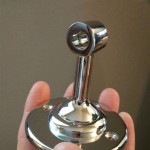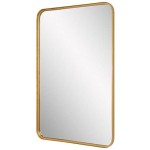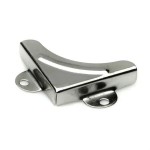How Much Does a Mirror Weigh?
Mirrors, those reflective surfaces that adorn our homes, businesses, and even our personal belongings, are essential for a variety of purposes. From checking our appearance before heading out to enhancing the aesthetics of a room, mirrors are ubiquitous in our daily lives. But have you ever wondered about the weight of these seemingly weightless objects? The weight of a mirror depends on several factors, making it more complex than a simple answer. Determining the weight of a mirror involves understanding its composition, size, and the type of frame or backing it has.
Factors Influencing Mirror Weight
The weight of a mirror is not a one-size-fits-all scenario. Several factors come into play, each contributing to the overall weight of the mirror. These factors include:
1. Mirror Size and Thickness
The most significant influence on the weight of a mirror is its size and thickness. Larger mirrors, naturally, will weigh more than smaller ones. The thickness of the glass also plays a crucial role. Thicker glass, used for larger or more durable mirrors, will be heavier than thinner glass used for smaller, decorative mirrors.
2. Mirror Material
While glass is the primary component of a mirror, the type of glass used can impact its weight. For example, traditional plate glass, often used in larger mirrors, is denser than thinner, more modern glass. The presence of multiple layers of glass, such as in some antique mirrors, can also increase the overall weight. Additionally, some mirrors might incorporate specialized glass, like tempered glass, which is stronger but also denser, thereby increasing the weight.
3. Frame and Backing
The frame and backing materials contribute significantly to the weight of a mirror. A heavy wooden frame, ornate metalwork, or substantial backing will add considerable weight. A lightweight, modern frame made of plastic or metal will be comparatively less weighty. The presence of extra components, such as integrated lighting or additional decorative features, can also impact the overall weight.
Determining the Weight of a Mirror
The weight of a mirror can be estimated using a few methods. One approach involves using the weight of the glass itself. The density of glass is approximately 2.5 grams per cubic centimeter. Knowing the dimensions of the mirror, you can calculate the volume of the glass and then estimate the weight based on its density.
Another approach involves consulting the manufacturer's specifications, if available. Some manufacturers provide detailed information on the weight of their mirrors, particularly for larger or custom-made mirrors.
Weight Considerations
Knowing the approximate weight of a mirror is essential for several reasons. The weight of the mirror needs to be considered when hanging it to ensure proper support and prevent potential damage. If a mirror is particularly heavy, it may require specialized mounting hardware and techniques for safe installation. Additionally, the weight of a mirror is crucial when considering the overall load-bearing capacity of a wall or shelf.

What Is Weight Of A Mirror Explain In Details With Examples The Engineer S Blog

Buy Glassless Mirrors On Wheels Gym Mirror For Weightrooms Portable And Rollable With Plexiglass Options Ballet Theater Ion

How To Hang A Heavy Mirror Or Picture True Value

Log Mirror Rustic Framed From Dutchcrafters Amish Furniture

How To Hang A Mirror With Pictures Wikihow

Fab Glass And Mirror 36 In W X 60 H Tempered Wall Kit For Gym Studio With Safety Backing Gm36x600 The Home Depot

Virtual Slimming Tools The Weight Mirror Makes You Appear Thinner In Photographs

Fab Glass And Mirror Annealed Wall Kit For Gym Studio 36 X 60 Inches With Safety Backing Gma36x60 The Home Depot
Katie Walker Weight And See Mirror

Sbc Decor Catherine 33 X 48 Wall Mounted Light Weight Resin Mirror In Antique Gold Finish








